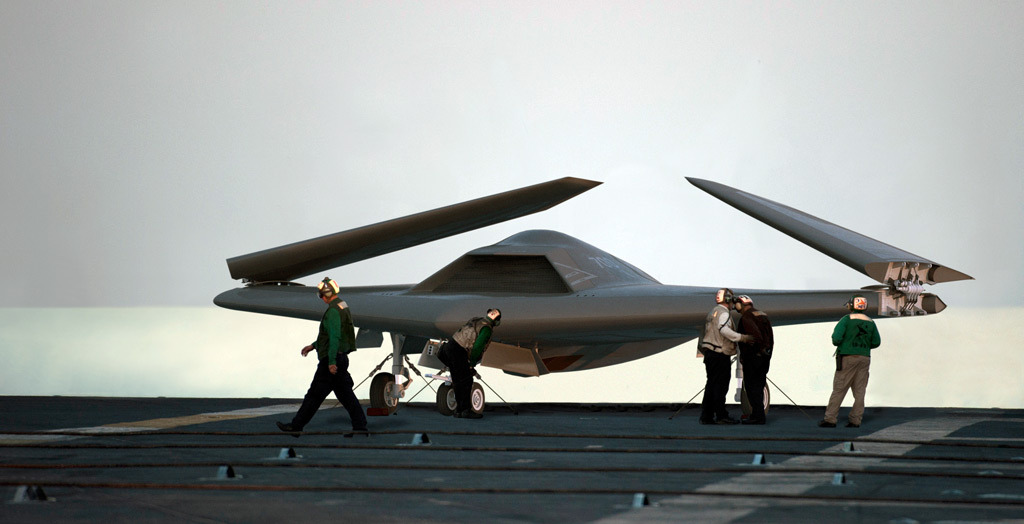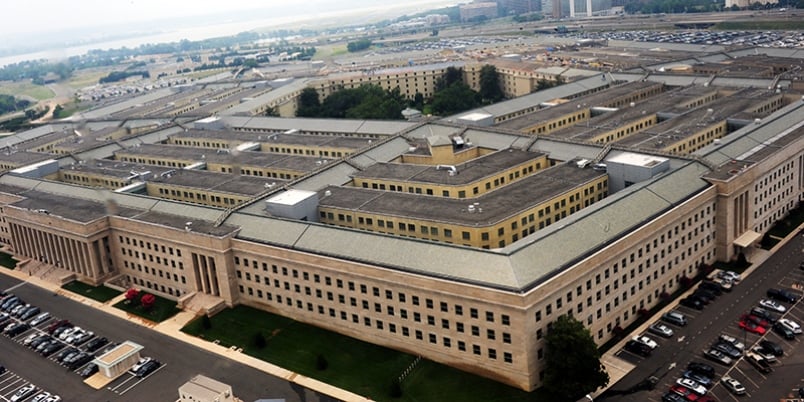
The U.S. Navy expects to release a classified draft request for proposals (RFP) for its Unmanned Carrier Launched Airborne Surveillance and Strike (UCLASS) aircraft before the end of April, according to the service.
“All of that is getting wrapped up into a draft RFP that we will be submitting to industry before the end of April,” said Rear Adm. Mat Winter, Naval Air Systems Command’s program executive officer for unmanned aviation and strike weapons at the Navy League’s Sea, Air and Space 2014 exposition on Tuesday.
“We have one more senior leadership review that’s scheduled to be very shortly.”
Winter said that the senior leadership review is expected to happen within the next seven to ten days.
Winter said that he is “100 percent” confident that the Navy’s leadership will sign-off on the draft RFP and that he does not expect any push back.
“The draft RFP will be classified,” Winter said.
“It will be targeted to the industry partners that are on the PDR [preliminary design review] contracts.”
The companies participating in the PDR are Lockheed Martin, Northrop Grumman, General Atomics and Boeing.
Winter said the reason the draft will be classified is to provide the industry with an appropriate level of information to submit their proposals.
Once the Navy releases the draft RFP, industry will have an opportunity to provide feedback during an industry day.
Unlike the traditional Pentagon process, there will not be a back-and-forth with industry; the companies will get to send their feedback once after which the Navy will work to finalize the RFP.
The final RFP is expected to be released this summer—likely June or July, Winter said. The program will go into, “source selection over the Christmas holidays.”
The Navy will pick a contractor in the middle of Fiscal Year 2015, Winter said. The Navy still hopes to get an operational UCLASS on the carrier flight deck within five years of a contract award.
“2020 is the expected, what we call, early operational capability of the UCLASS system,” Winter said.
While Winter would not share specific details about the what kind of design specifications the Navy is looking for in the UCLASS, he laid out the broad capabilities that the service is looking for — he emphasized — which have been stable since last April.
Those requirements call for the UCLASS to provide two intelligence, surveillance and reconnaissance (ISR) orbits 24 hours a day, seven days a week, while also providing a light strike capability inside permissive airspace.
It will also be “provisioned” for receiving fuel in the air and could act as a tanker, he said.
However, the Navy leadership has mandated that the UCLASS will be designed with a “technically feasible” path for growth so that the service does not need to spend “hundreds of millions of dollars later” to do major modifications as the service learns more about unmanned aircraft operations.
As such, the entire UCLASS system will be designed with completely open architectures and government-owned interfaces.
“As we go downrange, we don’t even know how we’re going to use UCLASS,” Winter said.
“We don’t know exactly how we’re going to operate it because we’ve never had a such a capability in our carrier environment.”





